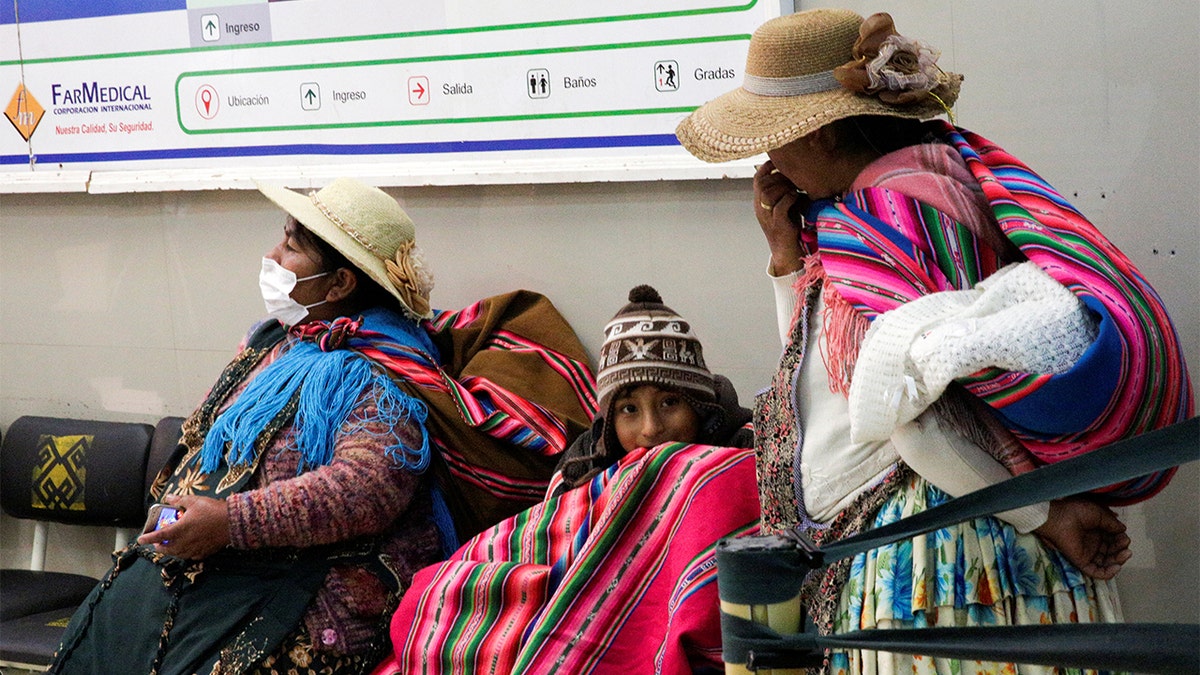More Americans experiencing financial stress amid COVID-19 outbreak
Survey: 6 out of 10 credit card holders carrying debt; Fox Biz Flash: 3/30.
Get all the latest news on coronavirus and more delivered daily to your inbox. Sign up here.
Indigenous groups in South America have begun blockading their villages, barring all entries and exits, in an effort to protect tribal members from the coronavirus pandemic sweeping the globe.
Pressure has mounted on these groups as cases in South America continue to rise: As of Monday, there were more than 12,100 cases on the continent with nearly 300 confirmed deaths.

Indigenous women with children wait at the Boliviano Holandes hospital after Bolivia's government declared a national emergency and suspension of school classes, in El Alto outskirts of La Paz, Bolivia, March 12, 2020. REUTERS/David Mercado - RC2IIF9X7ZQB
From Brazil to Colombia to Ecuador, tribal leaders have urged their residents to leave only for emergencies as roads to reserves have been sealed off, according to a Monday report.
South American indigenous groups are no strangers to pandemics, having dealt with them since at least colonial times. Multiple tribal leaders have warned against a potentially catastrophic situation if proactive measures aren’t taken, the Guardian reported.
“Right now, the big issue is stopping this virus from reaching the villages. If this virus gets into the villages it will cause a huge amount of death,” said Sofia Mendonca, a public health physician who works with Brazil’s Xingu national park, which is home to some 6,000 people from 16 different tribes.
“We are talking about true genocide,” she said.
Still, these tactics will bring inherent risks, experts warn. It is possible that tribal members who were not properly quarantined or tested could carry the virus home with them as they return to remote villages from areas outside reservations.
BOLSONARO CALLS BRAZILIAN CITIES’ CORONAVIRUS LOCKDOWNS A ‘CRIME’
“People are panicking. They are worried – and they want to go back,” Mendonça said. “But it is very important for there to be an isolation or quarantine process so you can [safely] return to your village, to your home. And this will require different strategies in each place.”
CLICK HERE TO GET THE FOX NEWS APP
In Brazil, where more than 300 indigenous tribes live, protests have increased against President Jair Bolsonaro’s dismissive attitude towards the coronavirus pandemic.








































